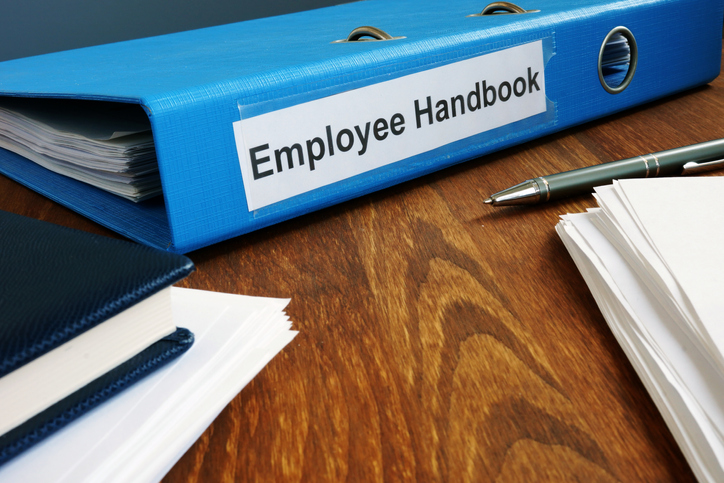At Romero Law, APC, our trusted employment law attorneys in Pasadena know that California employers are not required to provide employee handbooks. However, employee handbooks are considered best practice for several reasons, including primary communication of required employee notices.
They are the most effective way for employers to communicate federal, state, and local policies, set expectations, and act as a resource for employees.
For new and existing workers, employee handbooks may appear daunting on the surface, filled with workplace rules and regulations. In reality, the employee handbook ensures that workers’ rights are upheld by providing clear communication, legal information, and established procedures for addressing issues.
What are the Important Benefits of an Employment Handbook?
The employee handbook promotes fairness, consistency, and transparency in the workplace, which can benefit workers in case of workplace rights violations.
These benefits may include, but are not limited to:
- Clear Communication of Policies and Expectations
An employee handbook is a comprehensive document outlining the company’s policies, procedures, and expectations. This clarity helps employees understand more than their rights and responsibilities within the organization but also how they can hold their employer responsible for not following a rulebook it produced.
- Legal Protections
The handbook can include information about essential employment laws and regulations, like minimum wage, overtime, anti-discrimination and harassment laws, and family and medical leave rights. Providing this information helps ensure that employees are aware of their legal rights and protections so they can enforce them if they are violated.
- Consistent Workplace Behaviors
An employee handbook helps ensure that company policies and procedures are consistently applied to all employees. This consistency is essential for protecting workers’ rights because it prevents arbitrary or discriminatory actions by supervisors or managers.
- Conflict Resolution
The handbook often includes procedures for resolving workplace conflicts, including harassment and discrimination complaints. This can empower employees to report rights violations and seek resolution through established channels.
- Employee Benefits
Many employee handbooks provide information about health insurance, retirement plans, and paid time off benefits. This information is crucial for employees to understand the benefits they are entitled to, which contribute to their overall well-being and job satisfaction.
- Safety and Health
The handbook can outline safety and health policies, ensuring that employees know their rights and responsibilities regarding workplace safety. This includes information on reporting unsafe conditions and accidents.
- Work-Life Balance
Some handbooks contain information about work-life balance initiatives, flexible work arrangements, and parental leave policies, which can significantly impact employees’ personal lives and well-being.
- Whistleblower Protections
A well-structured handbook can include provisions to protect whistleblowers who report unethical or illegal behavior within the organization. This encourages employees to come forward without fear of retaliation.
Should I Sign a California Employee Handbook?
Many organizations ask employees to sign an acknowledgment of receipt to confirm that they have read and understood the handbook. This acknowledgment can be important if disputes arise over policy violations.
Employee handbooks are not legally binding unless they explicitly state that they are.
However, certain statements in the handbook can be interpreted as contractual promises if they are specific enough and imply mutual obligations between employer and employee.
Contact Our Skilled Employment Law Attorneys in Pasadena to Schedule a Free Consultation Today
If you believe your workplace rights are being violated, contact our experienced Los Angeles County employment law attorneys to discuss your unique workplace circumstances today.
Our employment law firm and bilingual staff offer services in both English and Spanish and are available now to discuss your case during a free consultation by calling (626)-396-9900 or contacting us online.


 (626) 396-9900
(626) 396-9900